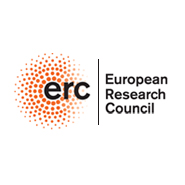Posted 06 February 2014
Prostate cancer researcher takes top prize at St Luke’s Young Investigators Awards
UCD researchers are the most successful Irish based researchers in the latest round of European Research Council (ERC) ‘top-up’ funding or 'Proof of Concept' awards.
Two of the three Irish based researchers who were awarded one of the thirty-four grants announced by the ERC [today] are based at University College Dublin: Professor Frederic Dias, UCD School of Mathematical Sciences; and Dr Debra Laefer, UCD School of Civil, Structural and Environmental Engineering.
The two UCD researchers, who already hold ERC grants, have received up to €150,000 each to bring their pioneering 'blue sky' research closer to the market.
“The funding announced [today] will help turn ideas into innovation. The ERC ‘Proof of Concept’ grants encourage a new type of thinking amongst researchers, backing them to make the most of their blue sky research. This mindset will help European recovery and improve our quality of life,” said EU Commissioner Máire Geoghegan-Quinn, Commissioner for Research, Innovation and Science.
'Blue sky’ basic science is focused on advancing knowledge, but it can sometimes generate unexpected applications. That is why the European Research Council (ERC) provides top-up funding, 'Proof of Concept', for its grant holders to bring their pioneering work closer to market.
In this call for funding, a total of 67 grants have now been awarded by the ERC – thirty-four announced [today] and thirty-three announced last September.
In this second round of funding, grants go to researchers in 13 countries across the European Research Area: the Netherlands (5), Germany (4), the United Kingdom (4), Ireland (3), Israel (3), Spain (3), Switzerland (3), Belgium (2), France (2), Sweden (2), Denmark (1), Finland (1) and Italy (1).
The next call for proposals - 'Proof of Concept' 2014 – is currently open [to ERC grant holders] with a first deadline on 1 April 2014.
Professor Frederic Dias, UCD School of Mathematical Sciences, University College Dublin: Measuring 'rogue waves' in extreme sea conditions
Recently, a new type of wave buoy reportedly measured a record wave height of 23.4 metres off the Northwestern coast of Ireland. Professor Dias, an applied mathematician working in Ireland, aims to produce finely-attuned sensors for a similar buoy specially designed to measure such 'rogue waves' in extreme sea conditions.
During his previous ERC project he studied the fundamental mechanisms underlying the physics of rogue waves – large coherent structures which emerge from a turbulent background. However, testing his theories about these structures proved more difficult, given the low reliability of conventional buoy measurements, especially in extreme conditions. So Dias has now secured a Proof-of-Concept grant to test his own measurement system, combining his research on the physics of extreme waves with the recent developments in buoy design, in order to optimise the new technology for waves of high amplitude and steepness.
Commercial applications, if successful, would include marine renewable energies, shipping, marine forecasting, and ocean observation.
ERC Funding: Advanced Grant 2011 (MULTIWAVE) €1.8 million for five years and Proof of Concept Grant 2013 (WAVEMEASUREMENT) €150,000 for one year.
Dr Debra Laefer, UCD School of Civil, Structural and Environmental Engineering, University College Dublin:
Rethinking Tunnelling in Urban Neighbourhoods
The RETURNPOC project will develop an interface that will allow pointcloud data from both terrestrial and aerial laser scanners to be used directly as input for three-dimensional (3D) printers. The process will circumvent the costly and time-consuming manual steps currently required for surface generation in a computer-aided design (CAD) or CAD-compatible format.
ERC Funding: Starting Grant 2012 (RETURN) €1.5 million for five years and Proof of Concept 2013 (RETURNPOC) €150,000 for one year.
The European Research Council launched the 'Proof of Concept' funding initiative in March 2011 to contribute to stimulating innovation. A single grant can be worth up to €150,000. The call is open to all Principal Investigators benefitting from an on-going ERC grant or a grant that ended less than twelve months before the publication date of the call. The funding is for up to 18 months per project.
Set up in 2007 by the EU, the European Research Council is the first pan-European funding organisation for frontier research. It aims to stimulate scientific excellence in Europe by encouraging competition for funding between the very best, creative researchers of any nationality and age. The ERC also strives to attract top researchers from anywhere in the world to come to Europe. The ERC operates according to an "investigator-driven", or "bottom-up", approach, allowing researchers to identify new opportunities in any field of research. Since its launch, the ERC has funded over 4,500 frontier research projects throughout Europe and has become a "benchmark" for excellent research.
From 2007 to 2013, as part of the seventh EU Research Framework Programme (FP7), the ERC's budget was €7.5 billion. Under the new Framework Programme for Research and Innovation (2014-2020), Horizon 2020, the ERC has a substantially increased budget of over €13 billion.
(Produced by UCD University Relations)

